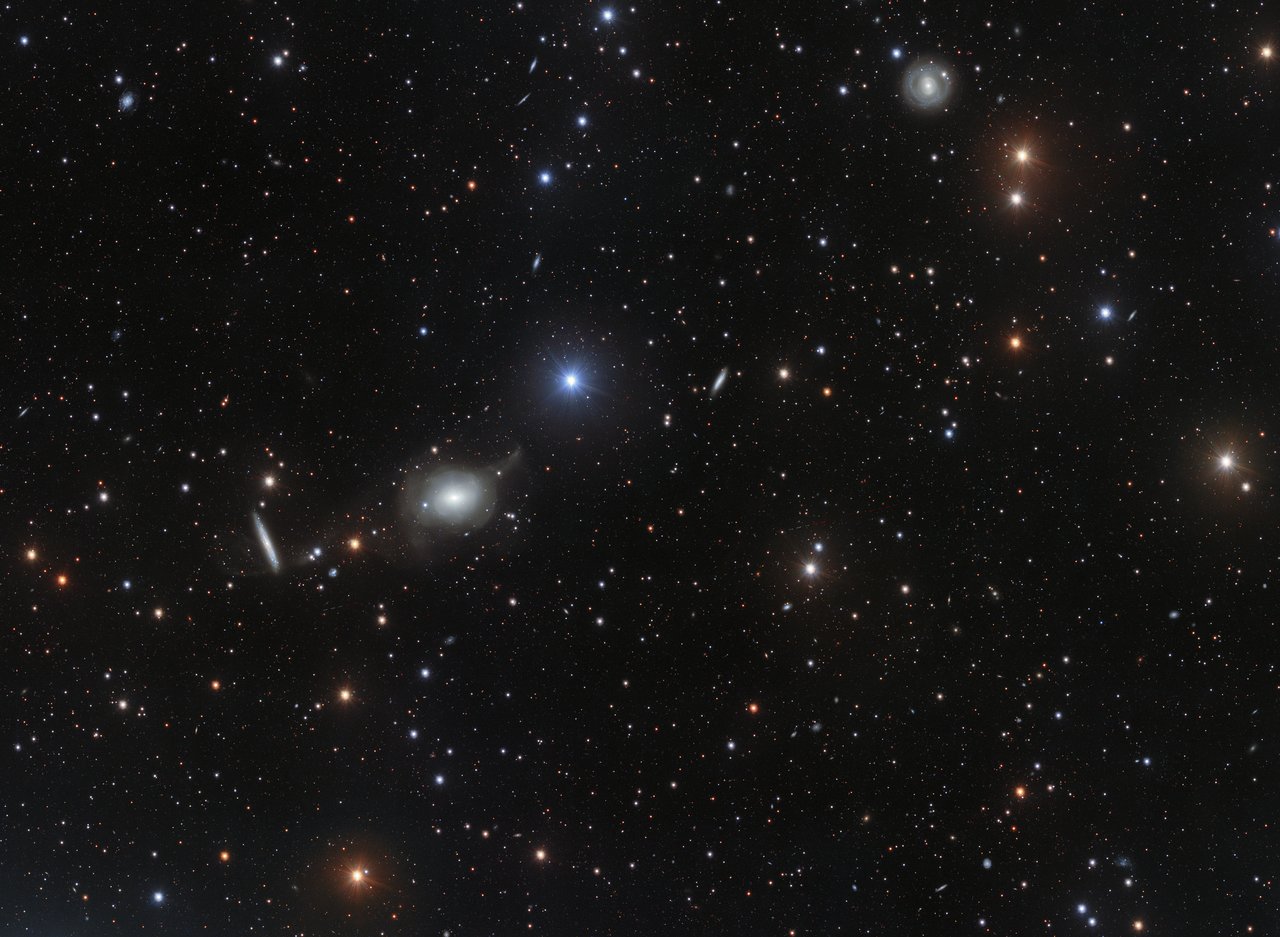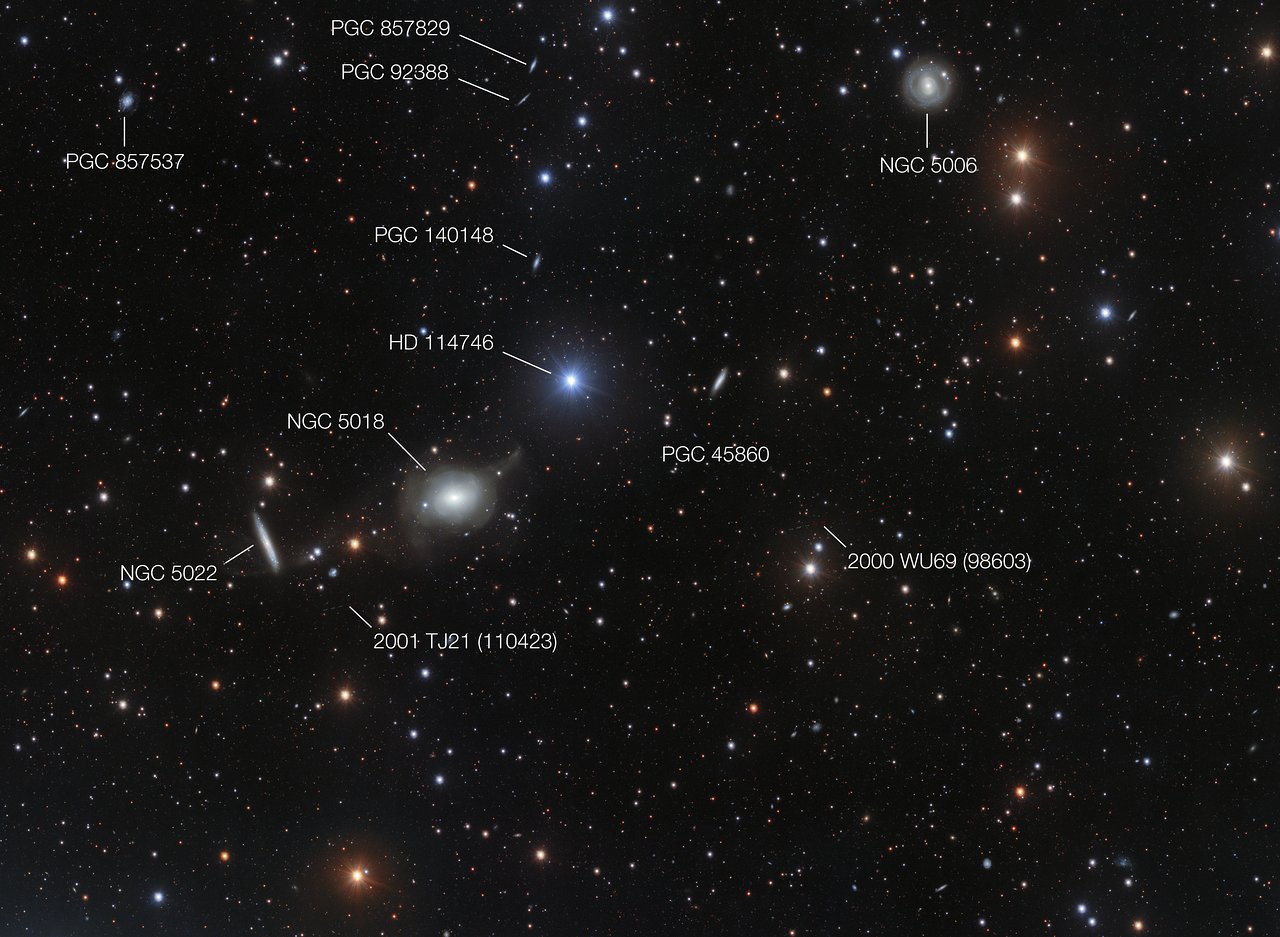They All Shine On! Galaxy Survey Yields Stunning Cosmic View
Breaking space news, the latest updates on rocket launches, skywatching events and more!
You are now subscribed
Your newsletter sign-up was successful
Want to add more newsletters?

Delivered daily
Daily Newsletter
Breaking space news, the latest updates on rocket launches, skywatching events and more!

Once a month
Watch This Space
Sign up to our monthly entertainment newsletter to keep up with all our coverage of the latest sci-fi and space movies, tv shows, games and books.

Once a week
Night Sky This Week
Discover this week's must-see night sky events, moon phases, and stunning astrophotos. Sign up for our skywatching newsletter and explore the universe with us!

Twice a month
Strange New Words
Space.com's Sci-Fi Reader's Club. Read a sci-fi short story every month and join a virtual community of fellow science fiction fans!
A curious collection of galaxies sparkles like jewels in a gorgeous new image taken by a powerful, Earth-based telescope.
The photo, taken by the European Southern Observatory's VLT Survey Telescope in Chile, is the product of an ongoing survey to better understand how elliptical galaxies form. The telescope features a wide field of view from its vantage point in dark Chilean skies, allowing astronomers to do their work far from light pollution.
One of the galaxies coming under scrutiny is NGC 5018, a milky-white pool of stars visible near the center of the image. NGC 5018 lies in the constellation Virgo, about 94 million light-years away from Earth. (One light-year is the distance that light travels in a year, which is 5.88 trillion miles or 9.5 trillion kilometers.)
"[NGC 5018] may at first resemble nothing but a diffuse blob. But on closer inspection, a tenuous stream of stars and gas — a tidal tail — can be seen stretching outwards from this elliptical galaxy," ESO officials wrote in a description of the newly released image.
"Delicate galactic features such as tidal tails and stellar streams are hallmarks of galactic interactions and provide vital clues to the structure and dynamics of galaxies," the officials added.
There are some other interesting features found in the picture as well. Lying conveniently along the line of sight is HD 114746, a blue foreground star. You can also see the faint tracks from two asteroids: 2001 TJ21 (110423) across the entire image, and 2000 WU69 (98603) closer to the right.
A paper based on this research, which is called the VST Early-type Galaxy Survey (VEGAS), will appear shortly in The Astrophysical Journal, ESO officials said. The study's principal investigator is Marilena Spavone, a researcher at INAF-Astronomical Observatory of Capodimonte in Naples, Italy.
Breaking space news, the latest updates on rocket launches, skywatching events and more!
Follow us @Spacedotcom, Facebook or Google+. Originally published on Space.com.

Elizabeth Howell (she/her), Ph.D., was a staff writer in the spaceflight channel between 2022 and 2024 specializing in Canadian space news. She was contributing writer for Space.com for 10 years from 2012 to 2024. Elizabeth's reporting includes multiple exclusives with the White House, leading world coverage about a lost-and-found space tomato on the International Space Station, witnessing five human spaceflight launches on two continents, flying parabolic, working inside a spacesuit, and participating in a simulated Mars mission. Her latest book, "Why Am I Taller?" (ECW Press, 2022) is co-written with astronaut Dave Williams.


